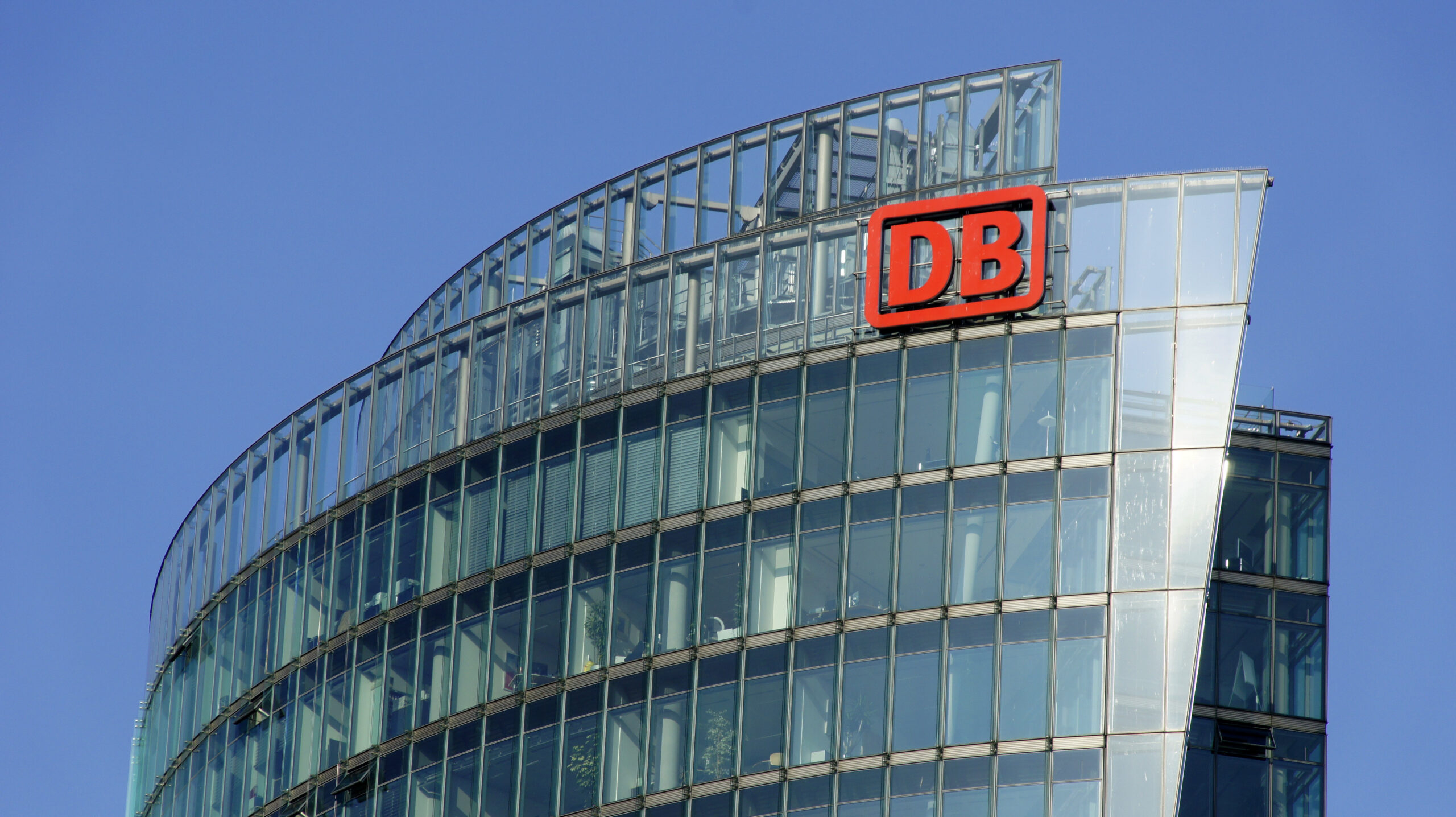[ad_1]
Germany’s national competition regulatory agency, the Bundeskartellamt has declared that Deutsche Bahn AG (DB) has violated competition law due to “abusing its market power in relation to mobility platforms.”
It has thus ordered Deutsche Bahn to change certain practices and contractual clauses to correct this violation and enable the success of competing mobility platforms.

Deutsche Bahn headquarters in Berlin
© Deutsche Bahn AG | Volker Emersleben
Mobility platforms provide integrated ticketing options and offer customers comparative information on itineraries with different means of transport and operators.
DB’s rail transport services consequently play an important role in their functioning, allowing passengers to combine train tickets with flights, car-sharing, long-distance coach services and rental bikes.
“State-owned Deutsche Bahn, which is vertically integrated from network operation to ticket distribution, is the incumbent rail operator in Germany. The services of third-party mobility platforms making integrated route planning possible for passengers are not conceivable without including Deutsche Bahn’s offers and traffic data.
“Deutsche Bahn is therefore subject to abuse control under competition law and has to fulfil special obligations towards rival platforms. This specifically concerns data sharing, bans on advertising, vertical price specifications, far-reaching bans on discounts and the withholding of different commissions for third-party platforms. Without effective enforcement under competition law, the business models of mobility platforms cannot function in competition with Deutsche Bahn.”
Alongside being a dominant rail operator, Deutsche Bahn is also a strong mobility platform thanks to its online portal, bahn.de and its app, DB Navigator.
According to the Bundeskartellamt’s findings, the company is using its key position in the transport and infrastructure markets to restrict competition from third-party mobility platforms.
Specifically, DB’s clauses on advertising bans, vertical price specifications, far-reaching bans on discounts and the withholding of commission for carrying out the payment process have been deemed to violate competition law.
Since DB no longer pays mobility platforms an intermediary commission for arranging ticket sales, the obligation to pay this commission in accordance with antitrust compensation standards was raised as a key issue in the investigation.
Furthermore, DB does not allow mobility platforms to access continuous and non-discriminatory real-time data on DB traffic, which is required for organising and booking multimodal journeys. This includes data on delays, cancellations, additional stops, replacement transport services, platform changes and data on major disruptions.
Although the EU rail passenger rights regulation, which came into effect on 7 June 2023, requires DB to share forecast data for the purpose of informing passengers, the Bundeskartellamt does not believe this sufficiently solves the violation of competition law. Indeed, the EU rail passenger rights regulation does not cover all of the required real-time data and does not regulate important commercial and technical aspects of implementing data access.
“To prevent possible practices of Deutsche Bahn favouring its own offers or providing less favourable conditions regarding access to forecast data, an official decision ordering Deutsche Bahn to stop engaging in such practices is needed. Deutsche Bahn also has to change a number of contractual clauses which may restrict competition at the expense of rival mobility platforms. We want to prevent Deutsche Bahn from expanding its dominance in passenger rail transport also to future mobility markets and from holding back innovative mobility service providers in favour of its own business interests.”
Following this investigation, the Bundeskartellamt has now imposed the following measures on DB:
- Mobility platforms will be able to use DB-specific terms for online and app-store advertising without any contractual restrictions imposed by DB.
- DB’s online partners will be able to use their own discount campaigns, bonus points or cash-back programmes when selling DB tickets. This will put an end to the unequal treatment between third-party mobility platforms and DB, which uses these means itself to advertise its services.
- DB will have to compensate mobility service providers based on minimum competition-law standards for carrying out the booking and payment processes.
- The rules under the EU passenger rights regulation regarding the provision of real-time data will be supplemented to ensure third-party access to data is non-discriminatory and comparable with DB’s own access to data
This decision to end DB’s competition-law violation aims to stimulate competition for smart mobility services.
However, the Bundeskartellamt’s decision is not yet final as DB can appeal the decision to the Düsseldorf Higher Regional Court within one month.
[ad_2]
Source link
